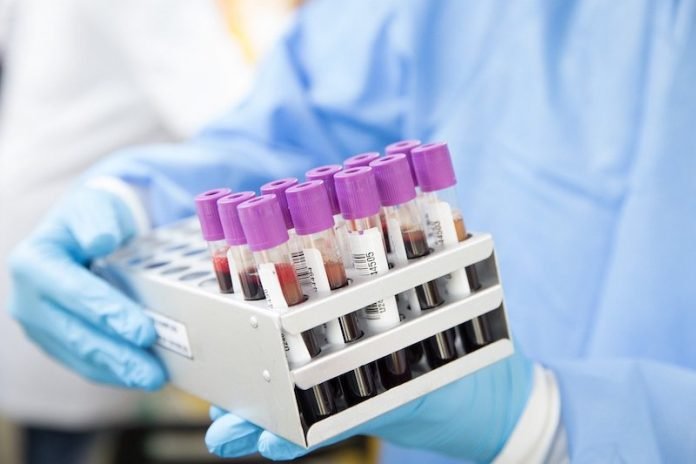
Pancreatic cancer is rarely detected at its early stages because symptoms often do not present themselves until after cancer has progressed.
By then, invasive procedures such as surgery, chemotherapy, or radiation are often needed to treat cancer.
If doctors can identify the potential for disease development as early as possible, preventative measures can be taken by the patient, which will ultimately lead to improved health outcomes.
In a new study, researchers found novel pieces of biological information, such as RNA, which may serve as biomarkers for early detection of pancreatic cancer.
They found by drawing a blood sample in a minimally invasive manner, they could analyze the nano-carriers called ‘exosomes’ that are present in the bloodstream, which contain different biological information from normal and tumor cells.
The research was conducted by a team at the University of Missouri.
In this study, the researchers analyzed the blood samples of healthy individuals and patients at different stages of pancreatic disease.
They identified novel RNAs that can be useful in distinguishing between healthy and cancerous conditions in the pancreas.
Screening both cancerous and non-cancerous subjects allows researchers to compare biological patterns to see if certain populations, such as those with a family history of pancreatic cancer, might be more predisposed to develop the disease.
Identifying these biomarkers early on can help researchers learn of one’s susceptibility to disease development.
The goal eventually is to keep people well-informed so they have greater awareness regarding any preventative measures.
While these studies are in the initial phase, more patient studies, which are currently ongoing, will shed light on the potential of identified biomarker applications in pancreatic disease.
One author of the study is Senthil Kumar, a research professor in the MU College of Veterinary Medicine.
The study is published in Scientific Reports.
Copyright © 2020 Knowridge Science Report. All rights reserved.



